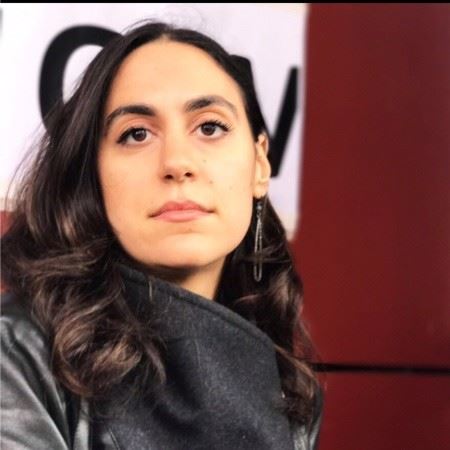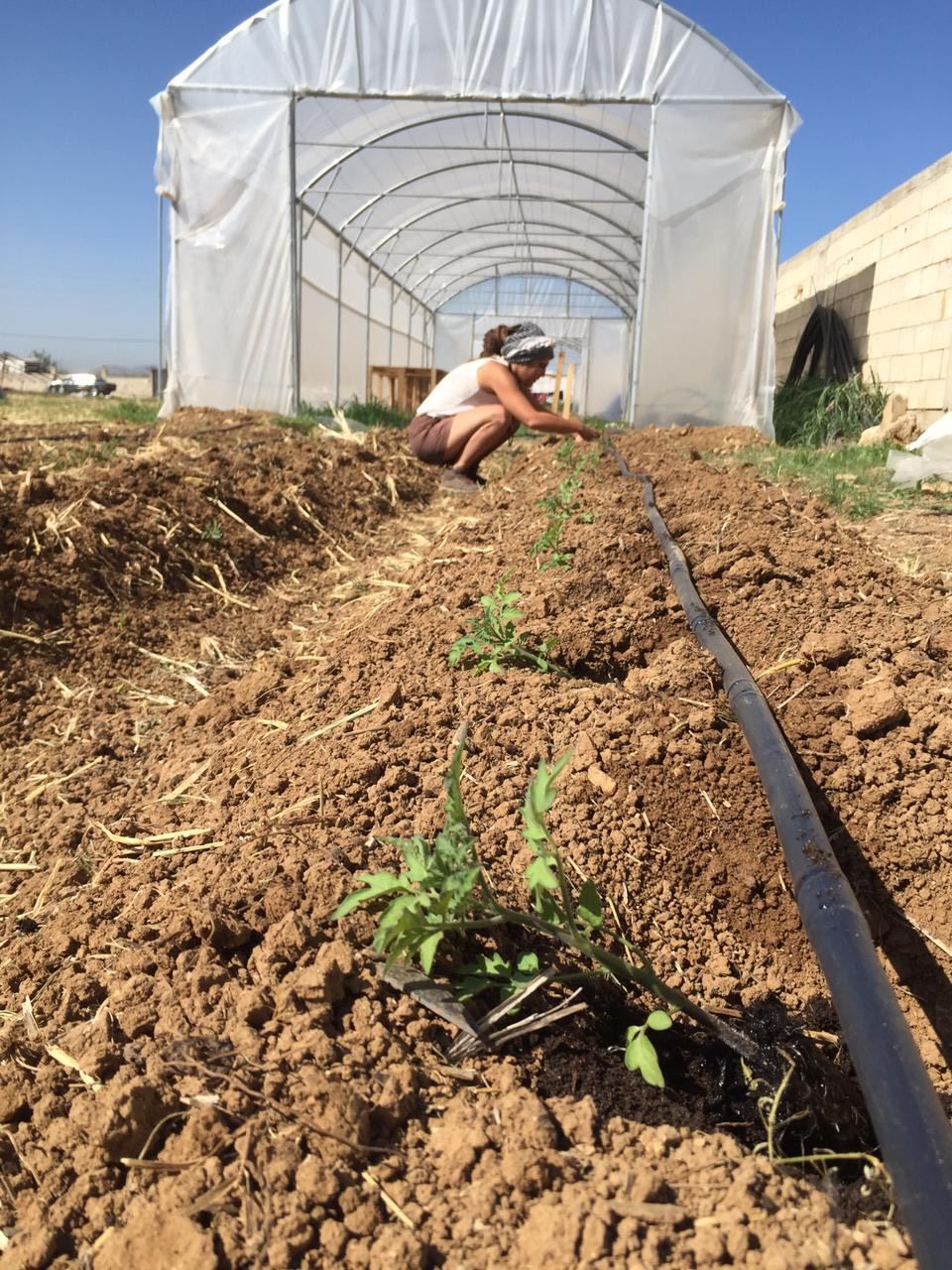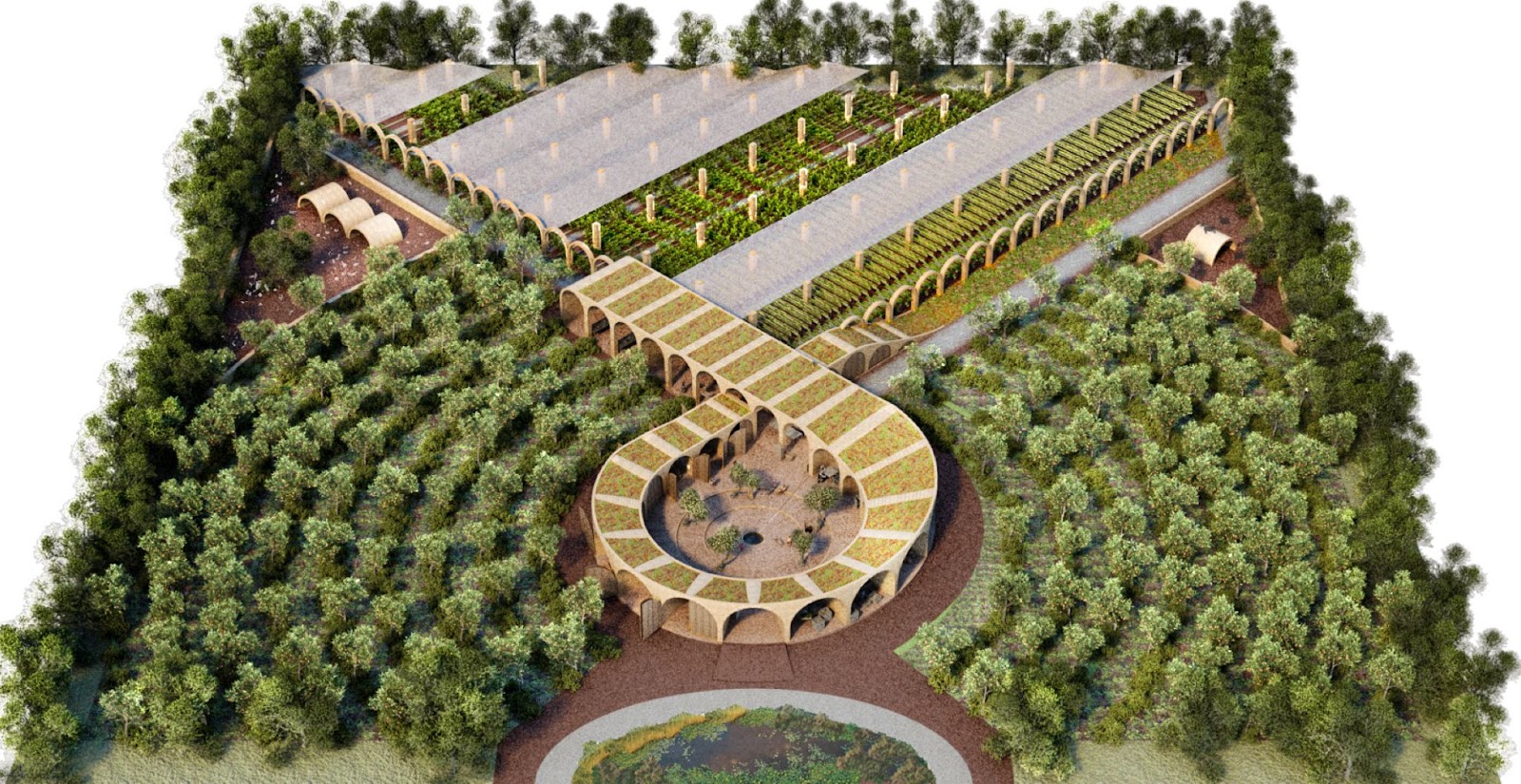While technological inventions are often developed and adopted by advanced countries, they are often a much needed solution for underserved communities. This has proven to be true in agriculture. Advances in technology have introduced modern irrigation and farming methods that have saved cost and enabled efficiency in crop production for many farmers. Technology and holistic solutions to improve farming methods have unfortunately not been implemented equally at the global level. Jehane and her team are driving to fix this in Lebanon.

In 2018, Lebanese social entrepreneur Jehane Akiki conducted a field trip to Zahle in Lebanon to identify farmers’ needs and challenges. She came back to New York and formed a team of designers, engineers, architects and farmers from different organizations and started designing Farms Not Arms, a modern farm targeting to address three main issues: food security, climate change and social cohesion.
Solving food security through technology
Farms Not Arms officially started operating in the Beqaa area in May 2021. The current team in Lebanon consists of five members, mostly women and young individuals, who manage the entire process from installing the equipment to sourcing and planting seeds, irrigating and harvesting. “It’s a women-led farm. This was not planned but we’re glad it is,” Jehane added.
The actual farm - ‘Turba’ which means soil in Arabic - is an integrated model that uses regenerative agriculture and low tech hydroponics to yield more produce in a smaller area. Regenerative agriculture is a dense hybrid multiple cropping system that incorporates different plants on different levels and rotates different crops, explains Jehane. Farmers can plant more and diversify their crops.

“In our model, you can plant 3.5 times more food in any given area, making farms more productive and enriching soil health while bringing carbon back into the soil, hence combating climate change. In traditional agriculture, the carbon isn’t going back to the soil compounding the issue of soil degradation because of pesticides,” she said. “If we don’t take care of the soil, we won’t have anything left to plant by 2075 and our food system will be jeopardized.”
Jehane believes that if the Farms Not Arms model spreads on 3% of Lebanon's lands then it can feed every person in the country their entire yearly dietary needs.
Currently, her organization is relying on a grant received from a food competition it took part in last year, organized by the Rockefeller Foundation and design agency IDEO. Farms Not Arms came in the top 14 and won $25,000 to cover its first year of operation. In order to become more financially independent, the team is planning to sell a part of their harvest to end consumers and donate a percentage of it to NGOs and individuals working with the organizations. They will also run an educational program in the summer to teach unemployed individuals innovative farming techniques. The program will be offered for free to those who can’t afford it.

(A futuristic sketch of Farms Not Arms)
A social entrepreneur at heart
Jehane’s passion for helping communities extends beyond Farms Not Arms. She has been involved in founding many startups focused on driving social change and serving underserved communities. She is also the founder and CEO of Learning Blocks, an education technology startup that creates a skill-based education certification system powered by blockchain. Its main goal is to provide certification for underserved communities in developing countries. In addition, Jehane is the founder of IOI Strategic Design, a consulting agency that fuses design and development to target social and governance problems. Jehane is a Global Shaper, an initiative by the World Economic Forum to create a network of young people in their 20s who are driving social change.
Her biggest concern remains “the current state of the world and what is going to happen to the planet,” she said. “The climate crisis is not just about the environment but also a mix of all the things we’re doing! All of our systems are broken in some form and this is contributing to the state of the planet.”
Despite leaving Lebanon to pursue her college studies in Boston and New York, double majoring in International Studies and Business Management, Jehane remains passionate about giving back to her country and to underserved communities.
One can only hope that with more people like Jehane, Lebanon will witness a rise in community-geared agriculture initiatives that can put a stop to food scarcity and help Lebanon become self-sufficient.
